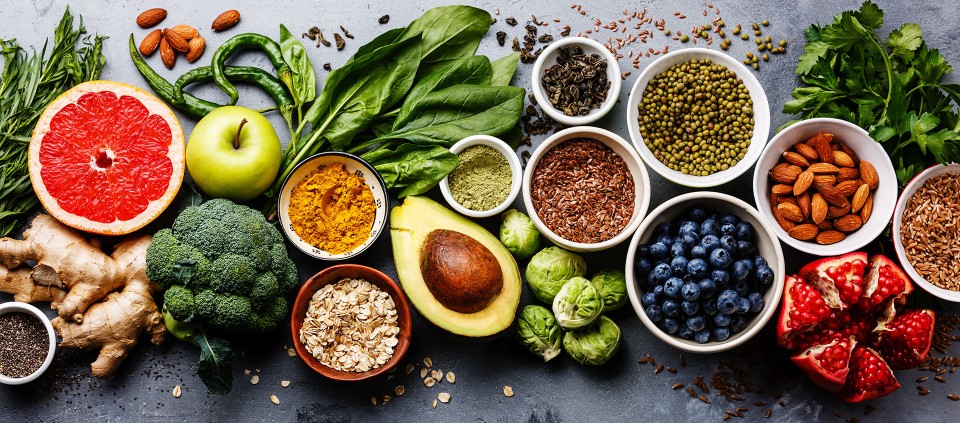Natural Strategies to Build Your Cancer Resilience

I live with cancer. Both my husband I and have had that stomach-dropping feeling that only a cancer diagnosis provides. We’ve spent some dark days deep in acceptance of whatever unfolds.
We are also both survivors. I’ve had what I call a not-so-spontaneous remission from a form of leukemia. My husband’s came as a best-case result of surgery and the removal of a rare, aggressive tumor.
We are not alone in our cancer journeys. According to the Centers for Disease Control and Prevention (CDC) and the World Health Organization (WHO), cancer is the second-leading cause of death in the United States and globally, exceeded only by heart disease. Cancer causes one in four deaths in the United States, and one in six deaths globally.
As an integrative dietitian and yoga therapist with a strong family history of cancer, I think about my own cancer resilience in yogic terms—the dance between willful effort (the next right proactive step) and surrender (accepting what comes).
WHO notes that a third of cancers are due to five lifestyle risk factors: tobacco use, alcohol use, high body mass index (excess weight), low fruit and vegetable intake, and a lack of physical activity. While neither of the cancers that have hit my immediate family is known for their lifestyle risk factors, I know that lifestyle choices played roles in both our recoveries.
Every cancer has a genetic component, and genetics are influenced by nutrition. When a cell mutates (mutations are happening all the time) and the conditions are right, the cell becomes cancerous. Cancer cells act differently from normal cells. They’re more aggressive, selfish, and don’t play well with others.
A recent advance in our understanding of cancer genetics has to do with something called epigenetics. The suffix “epi” means “around,” so epigenetics refers to how your genes respond to what is happening around them. It turns out that the “internal soup”—the biochemistry you create—impacts your gene expression quite a lot. Imagine, then, the internal soup you can create by paying attention to nutrition and practicing yoga—not just the physical practice, but also meditation and yoga philosophy.
Scientific consensus on the sort of diet that helps make you resilient to cancer is well established, and it’s far from the Standard American Diet. Resilience is built by eating plants: fruits, vegetables, fats, and plant proteins (such as chia, hemp, or other seeds; soy proteins like tofu and tempeh; beans and nuts); and by reducing the consumption of animal protein and fat, as well as alcohol.
The scientific literature supporting yoga for cancer is young but growing rapidly. An International Association of Yoga Therapy (IAYT) 2018 research summary identified 15 studies on yoga therapy for cancer survivors, seven randomized clinical trials (RCTs) with a total of 990 participants (mostly women, with a mean age of 61). Researchers in four of the seven RCTs found significant improvements in fatigue scores. Other important changes noted in the studies included improvements in sleep, energy level, and body image.
Yoga therapy during cancer treatment has also been studied, and in a 2017 review, IAYT found 11 RCTs and six studies with other designs. Significant improvements in mood and reductions in anxiety, depression, and negative thinking were noted, as well as decreases in fatigue and sleep issues.
What is your best recipe for cancer resilience? It depends on who you are, your family and health history, and where you are on your cancer journey. But no matter what, lifestyle—and the internal biochemistry you create through your choices and thoughts—has a profound impact.
From my experience and awareness of the science of cancer resilience, and as the chef of my own internal biochemistry, I have my own recipe for cancer resilience that seems to be working. Here is a recipe we can follow for prevention:
Get your screenings. Scary though it can be, the earlier you know, the more likely you are to outlive a cancer diagnosis.
Eat lightly and well. Begin with a primarily plant-based, whole-foods diet. Eat lots of fresh fruits, vegetables, and herbs. Enjoy whole grains, in moderation. Drink alcohol in moderation. Consume a small amount of high-quality dairy products, fish, and meat. Use supplements lightly, and only for a defined period of time to address specific symptoms.
Move. Walk, dance, stretch, clean your house … have fun! Move as much as you possibly can—if you’re in the second half of life, start gently and slowly increase as your strength builds.
Pause. Establish a contemplative practice; it can influence your internal biochemistry. Some days it’s yoga; some days it’s meditation and breathing; some days it’s mindful walking, knitting, or gardening. Do what makes you feel good.
Manage stress your way. Stress management doesn’t have to be complicated. Find things that nurture you deeply, such as spending time with people who care about you, or volunteering your time with organizations whose missions that align with your values.
I’m not perfect at cancer resilience. That’s not the goal. The goal is to live a life I love, and to learn from this teacher called life. I think about what my learning is, and how I can move forward. I understand that absolutely everything that happens in my life can be for my own development—the worst of it, as well as the miraculous.
Find out about nutrition and wellness programs with Annie B. Kay at Kripalu.
© Kripalu Center for Yoga & Health. All rights reserved. To request permission to reprint, please email editor@kripalu.org.
Annie B. Kay, MS, RDN, E-RYT 500, C-IAYT, is an author, nutritionist, Kripalu faculty member, and important voice in whole-foods nutrition and yoga.
Full Bio and Programs